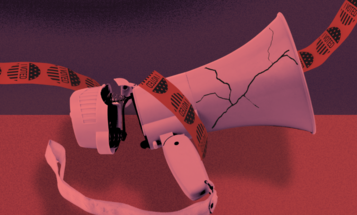
The Second Time’s a Charm for Automatic Voter Registration in Illinois
Illinois is on the cusp of becoming the newest AVR kid on the block—after a second bite at the apple.
Last week, the state’s House of Representatives unanimously passed Senate Bill 1933, which allows for the Secretary of State to construct an Automatic Voter Registration (AVR) system immediately upon signage into law. This action follows passage by the Senate on May 5th; that vote was also unanimous.
Governor Bruce Rauner has given notice that he intends to sign this bill.
Last year, similar AVR legislation, Senate Bill 250, was vetoed by the Governor, citing concerns of potential voter misconduct and conflicts with federal law. Despite overwhelming bipartisan support within both chambers, a veto override effort fell just 4 votes shy in the House this past November, after advancing in the Senate.
Illinois’ AVR system will provide opt-in voter registration at Department of Motor Vehicles offices, where motorists applying for driver's licenses, permits and identification cards can also apply to vote—as well as make name and/or address changes—within a single set of transactions. Similar opportunities will be made available through interactions at the Secretary of State’s office, as well as during interactions with government agencies that have been determined by the Board of Elections to be able to accurately verify voter information. Before officially applying, individuals will be allowed to decline registration without penalty.
Notably, Senate Bill 1933 also includes a wide range of privacy protections, as well as provisions to protect individuals who become inadvertently registered by any officially designated election authority.
With the Governor’s signature, Illinois will become the 9th state, along with the District of Columbia, to approve a system of Automatic Voter Registration. Since Oregon passed the first AVR law in 2015, state bills have been introduced in nearly two-thirds of the country. Oregon’s program, which features an opt-out system of voter registration, added over a quarter-million new voters in advance of the 2016 general election, which contributed positively to the 80 percent of all registered and eligible voters in the state who cast ballots.
Illinois also becomes one of 4 states (Colorado, Connecticut and Vermont) to offer both AVR and Same-Day Registration (SDR). These reforms in tandem complement each other in the effort to best expand voter access and increase turnout; Illinois’ first full SDR election occurred last year.
Senate Bill 1933 was co-sponsored by both Democrats and Republicans, and strongly advocated for by Just Democracy Illinois, a coalition dedicated to equal, expanded and fair access to voting.


